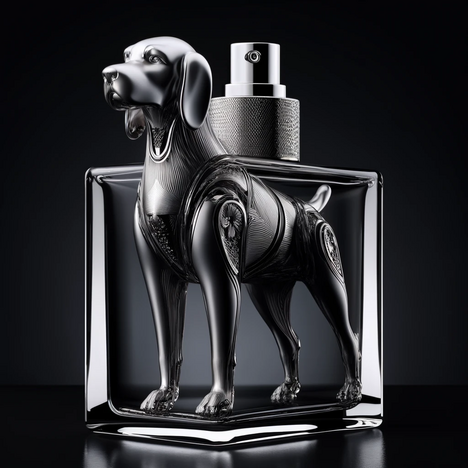Nerol

In the constant search for optimal health and well-being for our four-legged friends, we keep coming across ingredients whose effect on the dog's body is as fascinating as it is complex. One such ingredient is nerol - a chemical compound found in nature and often used in the perfume and aromatherapy industry. But what exactly is nerol, and what effects does it have on dogs? This article dives deep into the world of nerol, examining its benefits and drawbacks and giving you a comprehensive overview of this interesting fragrance.
What is nerol?
Nerol is an organic compound that belongs to the monoterpene alcohols. It is known for its pleasant, floral-fresh scent, which is often compared to the smell of roses. In nature, nerol is found in many essential oils, including those of roses, lemongrass, orange blossom and even hops. Chemically, nerol is closely related to geraniol, another monoterpene found in similar sources.
The benefits of nerol for dogs
Natural tranquilizer
One of the most notable benefits of nerol is its ability to act as a natural tranquilizer. Studies have shown that the scent of Nerol can have a calming effect on dogs, which is particularly useful in stressful situations such as thunderstorms, fireworks or visits to the vet.
Antimicrobial properties
Nerol has antimicrobial properties that make it a potential candidate for the treatment of skin infections. The use of nerol-containing products can help inhibit the growth of bacteria and fungi on dogs' skin, promoting skin health and reducing the risk of infection.
Insect repellent
Another benefit of Nerol is its effectiveness as a natural insect repellent. It can help keep away pesky parasites such as ticks, fleas and mosquitoes that can transmit diseases. This property makes Nerol an attractive alternative to chemical repellents.
The disadvantages of Nerol
Potential toxicity
Despite its benefits, Nerol also carries certain risks. If used incorrectly or overdosed, it can be toxic to dogs. Symptoms of Nerol poisoning can include vomiting, diarrhea, lethargy, and in severe cases, even liver and kidney damage.
Allergic reactions
Some dogs can have an allergic reaction to Nerol, which can cause skin irritation, itching and other allergic symptoms. It is important to watch for signs of an allergic reaction when first using nerol-containing products and stop use if necessary.
Interactions with medications
Nerol may interact with certain medications your dog may be taking. These interactions may affect the effectiveness of the medication or cause unwanted side effects. Always consult a veterinarian before using Nerol or other essential oils on your dog, especially if he is already on medication.
Nerol offers an interesting mix of benefits and potential risks to the health and well-being of dogs. Its natural calming, antimicrobial and insect repellent properties can be very useful in certain situations. However, it is important to consider the potential toxicity, the possibility of allergic reactions and the potential interactions with other medications.
If you notice any signs of hypersensitivity or poisoning in your dog, you should see your vet immediately. We are not a substitute for a vet, but we try to be as accurate as possible. Every dog reacts differently and we recommend you get a second opinion or consult your vet if in doubt.
Stay healthy and take good care of your four-legged friend!😊
Similar to Nerol
Geraniol belongs to the so-called terpenes, which have a number of biological functions. Geraniol has an antibacterial, anti-inflammatory and antioxidant effect, for example. Geraniol also has an...
Dogs have a very keen sense of smell and are therefore sensitive to different scents. Linalool can have different effects on dogs depending on the concentration and application. In small...
Citronellol has several properties that can make it useful for dogs. Firstly, it has an antibacterial effect and can therefore help to prevent or treat infections. Secondly, it has an insect...
Limonene is a colorless liquid that is mainly found in the peel of citrus fruits. It is a terpene responsible for its strong citrus scent and is used in aromatherapy and as a natural solvent in...



